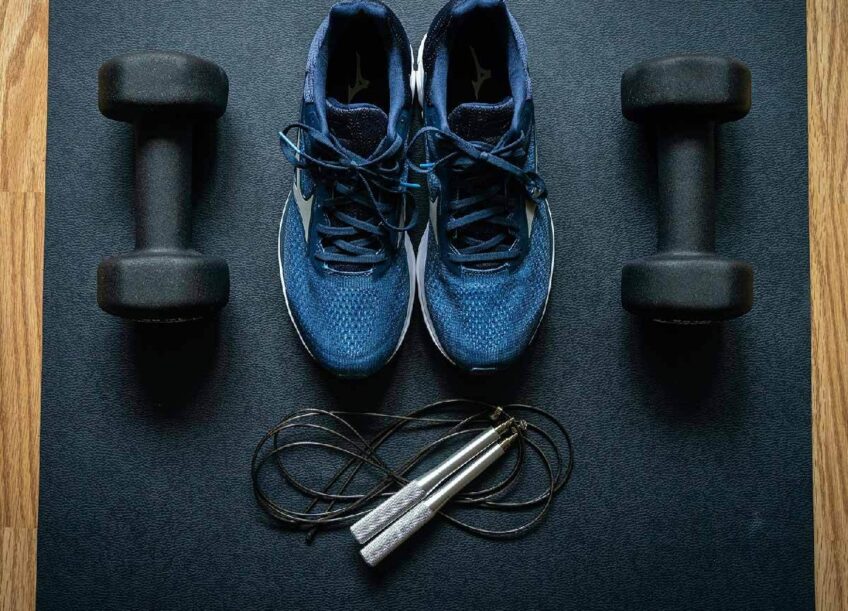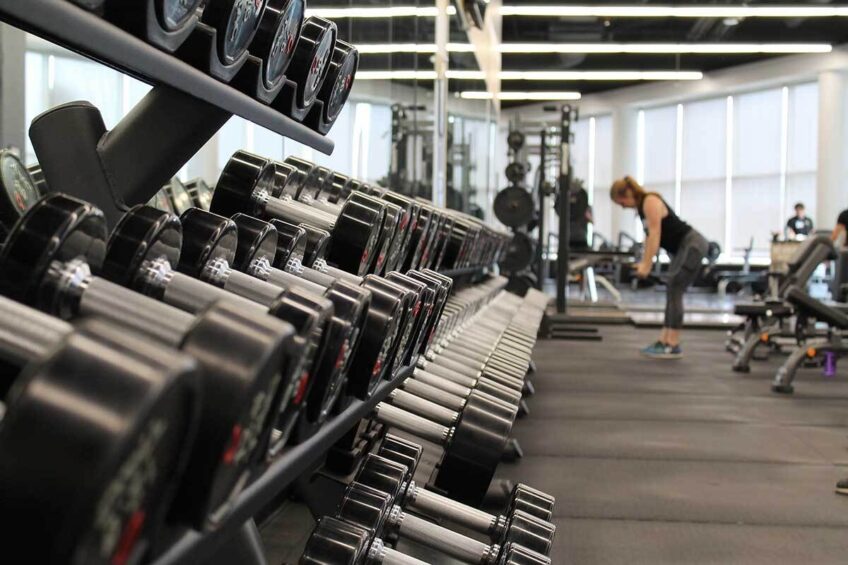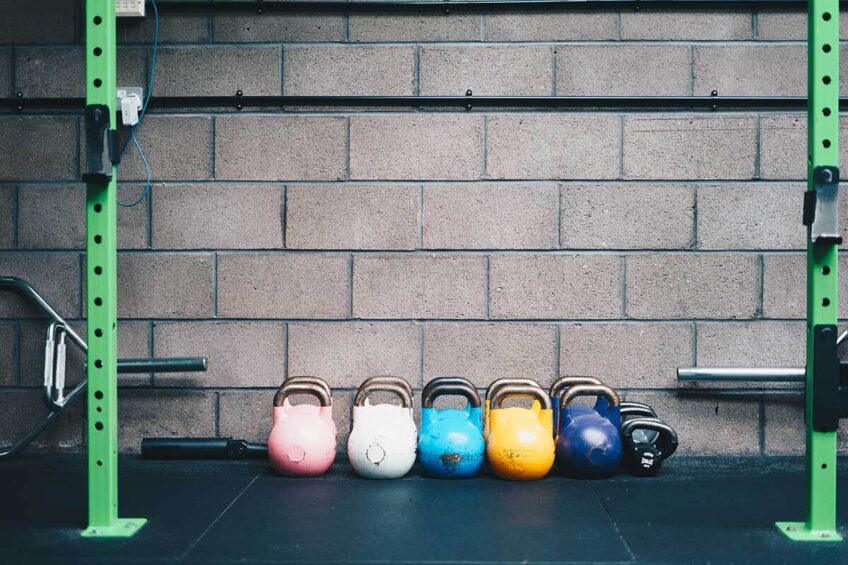Is Having a Home Gym a Good Idea? What are the Pros and Cons?
Deciding between a home gym and a typical big-chain gym will depend on your needs. Let's explore the pros and cons of each.

It’s a problem that has plagued gym-goers for years and probably will continue to do so for many years to come. It affects all of us at some time or another. Why is it that even though I enjoy lifting weights, even though I love being at the gym and the endorphins that flood my body afterward, why do I find it so hard to motivate myself to go in the first place? It’s a mystery.
If you fall into the same category, I’m sure that at some point during your training, like me, you have considered the benefits of having a home gym. Setting up a home gym can be a great way to stay motivated. Removing the hurdle of getting to the gym seems like the perfect solution, right? Potentially.
Both commercial and home gyms have a plethora of benefits and disadvantages to both options. Ultimately it will come down to your needs, personality, and financial situation. This article will compare both sides of having a home gym.
If you are here because you are on the fence, hopefully, by the end of this article, you will have the knowledge to make an informed decision.
The Commercial Gym
Old faithful. The commercial gym is the place where most of us began down the road to greatness. When people talk about going to the gym, usually, this is what they mean. Rows of treadmills, cross-trainers, and rowing machines cover most of the space. Huge collections of dumbbells, barbells, and kettlebells fill the rest.

The commercial gym never deviates far from the basic gym blueprint. This can be both good and bad, depending on your perspective.
The Pros of a Commercial Gym
The huge range of equipment in a commercial gym is rewarding. All their gym equipment is amazing! You are given access to thousands of dollars worth of high-end workout equipment for a monthly fee. You often also gain access to amenities that you just don’t get in garage gyms, like a fully equipped sauna or personal trainers.
Another huge selling point for a commercial gym is childcare. Many big-chain gyms offer a service where you can drop your kids off for a few hours to get your workout in. The kids get to play with other kids, and you get your lifts in, win-win.
Good gyms also have their own community and social groups. Finding other gym buddies can greatly benefit your workouts; this study shows that effort levels and workout durations increase massively when training with a partner. Finally, although it can be really tough to motivate yourself to get changed and drive to the gym, it can have a ritualistic effect. Many of us know that when we cross the threshold into the gym, it's time to get serious.
The Cons of a Commercial Gym
As with most things, there are some negatives to using a commercial gym too. For instance, it can be frustrating to wait for the piece of equipment you want. When you are in the zone, this can be seriously jarring, especially if you're working on a tailored workout plan.
Driving to the gym is also a chore if it takes you half an hour to get there, and you work out 5 times a week, you will spend 81 days of your life over a 15-year period just driving to your workouts.
Commercial gyms are not usually open 24/7 either, so if you like to work out during off-hours, this might be a problem. God help you if you forget your headphones too. Commercial gyms typically play music that's anything but motivating.
Finally, the most considerable downside to a commercial gym is the monthly payment. If you are serious about working out and plan to work out for the next 5+ years, adding up those monthly payments can lead to a staggering amount.
The Home Gym

A garage gym or home gym setup is a dream for many lifters and serious fitness folks. They address lots of issues that you find in a commercial gym.
The Pros of a Home Gym
First and foremost, in the long run, a home gym will save you money. Although they can cost a lot to set up, if you plan to work out for the rest of your life, dropping the monthly gym fee will add up to some serious dollars.
A much-appreciated benefit to a home gym is the ability to work out in solitude, which means no more waiting for the squat rack, no more talking to the “bros,” and no more questionable gym soundtracks. Never again will you feel rushed or feel uncomfortable with on-lookers. No more locker room sharing or odd odors -- throw your garage doors or windows open and let that fresh air in!
This leads to our next benefit, a particular favorite of mine. The ability to dress how you want, act how you want, and make as much noise as you want. Wearing clothes that you feel comfortable in makes all the difference for a great workout.
And, as it is connected to your house, you can work out 24/7. That means you are free to do so if the urge to relieve some stress hits you at 2 in the morning. A final positive point that I really like about home gyms is the ability to involve your kids in your passion. Working out on a Saturday and watching the kids can be combined into a beautiful bonding experience.
The Cons of a Home Gym
Gym equipment is really expensive. If you want a range of cardio equipment, the price tags can be eye-watering, and a full set of calibrated plates and a bench can get up in cost quickly. You also have to deal with the fact that you will potentially lose usable space for your home gym.
Unfortunately, when things go wrong (such as dropping a dumbbell into a wall or mirror) in your home gym, you must get it repaired. That means if your treadmill needs expensive repairs, it could get costly. This is different from commercial gyms, where the owners cover the repairs.
When you go into a commercial gym, it is easy to have that laser focus. Get in, work out, get out is often the game plan. When your gym is attached to your home, though, distraction will be your biggest enemy.
Staying in the zone and connecting with your body becomes much harder when you can smell dinner being cooked or your kids calling you!
So, which is the best choice?
Deciding which option is best for you will depend on your needs. If you do not have a garage or a home space to convert to a dedicated gym area, a commercial gym might be the best choice.
Commercial gyms are also better for beginners and people with kids. Being able to drop the kids off for a couple of hours is a Godsend. Commercial gyms are just a lot more hassle-free. You will not have to spend money maintaining the equipment, just turn up, work out and leave. This will be very appealing to lots of people.
Home gyms are great for those that really struggle to get to their local commercial gym. A garage gym may be your only option if you like to work out late at night or early in the morning. You also get a level of personalization when you design your own garage gym too.
If you love bench and squats, get some high-end machines. You can utilize the machines all you want, work out in whatever clothes you desire, and choose the soundtrack to your workout.
If you are still on the fence and are not quite ready to leave your commercial gym, I recommend creating a simple starter home gym. Get a few weights, a few resistance bands, and some cheap mats. Try a short workout on the days you struggle to get motivated. Build it up, and if you enjoy working out at home, you can start building a better, more expansive gym.
Hopefully, you now have a better idea of the pros and cons of both options. Armed with this knowledge, you should be better equipped to make the best decision.
Tony Lee, MS, RD
Tony Lee, RD, MS, is a highly qualified and accomplished Registered Dietitian with a Master’s Degree in Nutrition Sciences. Tony brings over two decades of experience in dietetics, specializing in sports nutrition. Interests include studying all aspects of wellness, fitness, genetics, and peak health performance.










